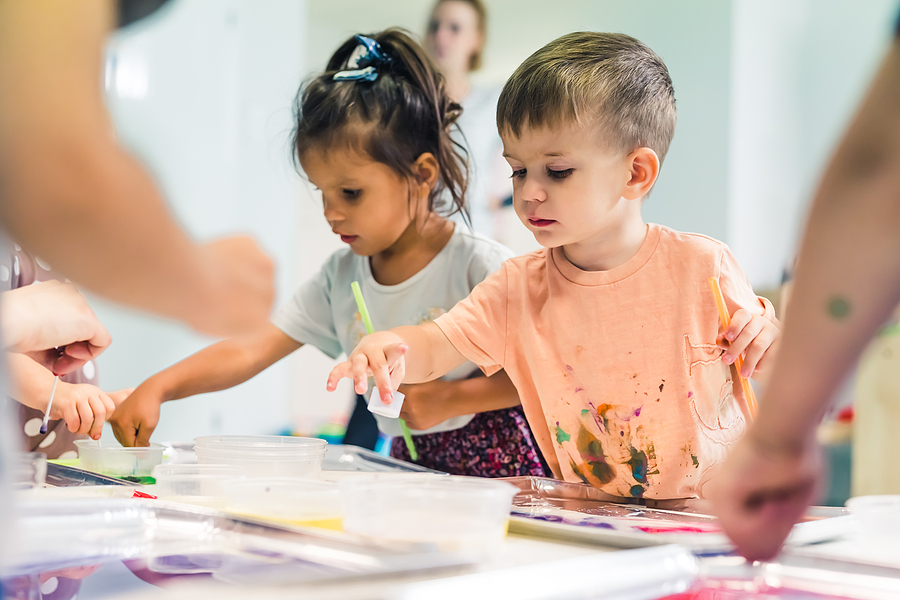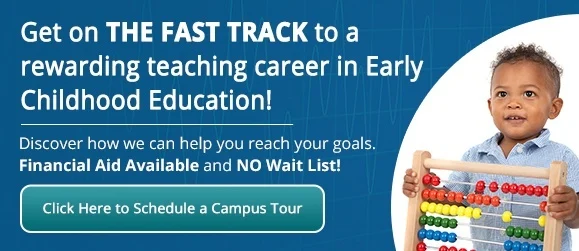How to Create a Calm and Inclusive Preschool Classroom
Posted On October 17,2023
Preschool is a pivotal time in a child’s life when they embark on their educational journey. For many children, it’s their first experience in a structured learning environment outside their homes. As a preschool teacher, you have the unique opportunity to set the stage for a lifetime of learning. One of the key elements in achieving this is by creating a positive and inclusive classroom environment. In this blog post, we will explore tips and strategies to establish a welcoming and inclusive preschool classroom where young learners can thrive.

The Importance of Inclusivity in Preschool Education
Before delving into specific strategies, let’s take a moment to understand why inclusivity is vital in a preschool classroom.
- Fosters a Sense of Belonging: An inclusive classroom helps every child feel like they belong. When children feel valued and accepted, they are more likely to engage in learning and develop positive self-esteem.
- Supports Diverse Needs: Children come from different backgrounds and have varying abilities and needs. An inclusive classroom acknowledges and accommodates these differences, ensuring that every child has an equal opportunity to learn and grow.
- Promotes Social and Emotional Development: Inclusivity teaches children empathy, understanding, and respect for others. It helps them build strong social and emotional foundations that will serve them well throughout their lives.
- Prepares Children for a Diverse World: In today’s global society, it’s essential to prepare children to interact with people from diverse backgrounds. Inclusive classrooms offer an early introduction to this important life skill.
Practical Tips and Strategies
1. Set Clear Expectations
Begin the school year by setting clear expectations for behavior and conduct in the classroom. Make sure children understand what is acceptable and unacceptable behavior, and consistently reinforce these expectations. This helps create a safe and predictable environment where children can thrive.
2. Develop a Welcoming Physical Environment
Your classroom’s physical layout plays a crucial role in inclusivity. Arrange the space so that it’s accessible to all children, including those with physical disabilities. Ensure that learning materials and resources are within easy reach for little hands. Create cozy and inviting spaces for reading, play, and exploration.
3. Use Inclusive Language
The words you use can have a significant impact on the inclusivity of your classroom. Use inclusive language that respects and affirms every child’s identity. For example, instead of saying, “Boys and girls, line up,” say, “Friends, it’s time to line up.” This small change fosters a sense of belonging for all.
4. Celebrate Diversity
Diversity should be celebrated in the classroom. Incorporate books, toys, and artwork that represent different cultures, races, and abilities. This helps children learn about the world’s richness and develop an appreciation for differences.
5. Individualize Learning
Recognize that each child is unique and progresses at their own pace. Provide opportunities for individualized learning experiences, and adjust your teaching strategies to cater to each child’s strengths and areas of development.
6. Use Visual Supports
Visual supports can be incredibly helpful for children with varying abilities. Use visual schedules, labels, and cues to assist children in understanding classroom routines and expectations.
7. Encourage Cooperation and Collaboration
Foster an environment where children work together and learn from each other. Activities that promote cooperation and collaboration help build strong relationships and teach valuable social skills.
8. Address Challenging Behaviors Positively
When challenging behaviors arise, approach them with patience and understanding. Try to identify the underlying causes and provide support to help the child navigate their feelings and behavior. Use positive discipline techniques that focus on teaching rather than punishing.
9. Communicate with Parents
Maintain open lines of communication with parents. Invite them to share their insights and concerns about their child’s needs and development. Collaborate with parents to create a supportive and inclusive learning experience.
10. Professional Development
Never stop learning. Seek professional development opportunities to stay current with best practices in early childhood education, including strategies for inclusive classrooms.
11. Be a Role Model
As a preschool teacher, you are a role model for your students. Demonstrate inclusivity, respect, and kindness in your interactions with both children and colleagues. Your behavior sets the standard for the classroom.
12. Create Inclusive Classroom Policies
Develop classroom policies and procedures that promote inclusivity. This may include policies on anti-bullying, conflict resolution, and accommodations for children with special needs.
13. Encourage Empathy
Teach children the value of empathy and kindness. Read books and engage in activities that help children understand and appreciate the feelings of others.
14. Monitor and Adjust
Regularly assess your classroom environment and teaching methods. If you notice that certain practices are not fostering inclusivity, be willing to make adjustments and improvements.
15. Seek Support and Collaboration
Collaborate with other educators, special education professionals, and support staff. They can provide valuable insights and resources to ensure the success of all students in your classroom.

Start Your Career at Athena Career Academy
Our Early Childhood Associate degree program offers an excellent opportunity to launch a fulfilling career in Early Childhood Education. Here’s why you should consider enrolling:
Program Duration and Schedule:
- The program typically spans two years.
- It operates on a quarterly system with four start dates throughout the year: Fall, Winter, Spring, and Summer.
- Athena Career Academy understands the needs of its students and offers both day and evening classes to accommodate various work schedules.
Degree Upon Completion: Upon successful completion of the program, you’ll earn an Associate Degree in Applied Science (AAS) in Early Childhood Education. This degree is accredited by the Commission of the Council on Occupational Education and approved by the Ohio State Board of Career Colleges and Schools, ensuring your qualification’s credibility.
Comprehensive Curriculum: The program covers a wide range of courses essential for your development as an early childhood educator, including:
- Foundations of Education
- Child Development
- Early Childhood Professional/Community
- Creative Art, Music, and Play for Early Childhood
- Early Childhood Literacy
- Infant Toddler Care and Development
- Safety, Health, Nutrition for Early Childhood
- Preschool/School-age Programming
- Observation Positive Behavioral Management
- Special Needs and Education
- Diversity and Multicultural Understanding
- Organization and Administration of Early Childhood
- Practicum/Seminar
- Oral Communication
- Introduction to the Arts
- Personal and Social Behavior
- Introduction to Sociology
- Basic Mathematics
- Introduction to Accounting
- Fundamentals of Biology
- Introduction to Technology
- Understanding Parenthood
- STEM/STEAM
Convenient Location and Facilities: Classes are held at Athena Career Academy’s campus, conveniently located at 5203 Airport Highway, Toledo, Ohio 43615. The campus features dedicated labs designed specifically for the Early Childhood Program, ensuring you have access to hands-on experiences in areas such as art, music, and lesson planning. Computer labs are also available for your convenience.
Flexible Enrollment: New classes start approximately every three months, offering you flexibility in beginning your educational journey. Please note that all required documents and out-of-pocket expenses must be submitted by the registration deadline. Be sure to check Athena’s Academic Calendar for specific start dates.
Athena Career Academy’s Early Childhood Associate degree program offers a well-rounded, accredited education in Early Childhood Education with flexible scheduling, comprehensive courses, and hands-on learning experiences. If you’re passionate about shaping young minds and fostering inclusive learning environments, Athena provides the ideal foundation for a rewarding career in this field. Enroll today with Athena Career Academy.